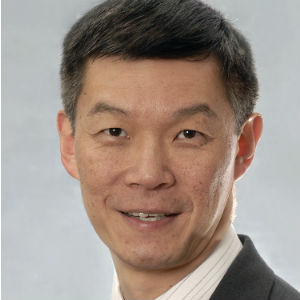Patient care principles guide CSC's Robert Wah to AMA leadership
Computer Sciences Corp. chief medical officer, Robert Wah, has been picked as president-elect of the American Medical Association and he'll use the same patient-first principle at AMA as he has at CSC and in private practice.
Whether it is working as a chief medical officer for a large government contractor or seeing patients in private practice, Robert Wah has been guided by a single principle: How to provide the best care for his patients.
And that’s the same principle he’ll keep in mind as he begins his stint as president-elect of the American Medical Association.
Founded nearly two centuries ago, the AMA is the largest U.S. association of physicians and medical students.

Robert Wah
“The American Medical Association is an umbrella organization that represents all physicians, really regardless of specialty, geography, mode of practice or career stage," said Wah, chief medical officer at Computer Sciences Corp. "It really serves as a great source of information, perspective and experience about how health care is delivered across the Unites States for our patients."
For Wah, the answer to that question of how to provide the best care to patients has had a number of answers.
Since 2007, he's been CSC’s chief medical officer working with the company’s capabilities in health informatics and IT, public health and life sciences to help government agencies using technology to improve health care.
But government contracting is far from where Wah began his career. He started as a captain in the U.S. Navy Medical Corps, where he spent 23 years learning about military health, and what it has to offer.
“I believe that military medicine is some of the best medicine provided in this country, but I also recognize that there are other health care systems out there besides the military health system,” Wah said.
Wah’s desire to get involved in the American Medical Association came from that recognition; he wanted a more robust perspective on U.S. health care, he said.
Now, having spent more than 20 years with the association, it’s been a successful venture; “It's been very satisfying for me to be able to see other parts of health care across the country,” Wah said.
Wah’s history with the association is extensive; he’s been a member of its House of Delegates for 17 years, and has served as chair of the Council on Long Range Planning and Development, which is one of the association’s seven major councils. He has also been a member of the AMA’s board since 2005, even serving as its chairman from June 2011 to June 2012.
A reproductive endocrinologist and ob-gyn by profession, Wah has always been attracted to projects that have a large scope and scale, projects that have complexity, he said.
“I've done a great deal of work one-on-one with my patients, but I've been in positions where I've had great influence in scope and scale to have an impact on many, many more patients than I could just one on one with my clinical practice,” Wah said.
One of these bigger positions, for example, began when President George W. Bush appointed David Brailer to be the first national coordinator for health IT and Bailer tapped Wah to be the nation’s first deputy national coordinator.
However, it’s not only broad-based work that Wah keeps busy with; “I still see patents and do surgery at NIH, and at the Walter Reed National Medical Center in Bethesda, but that's a smaller part of my time now compared to when I was full-time as a clinician,” he said.
Being president of the American Medical Association won’t be an easy undertaking, but Wah is up for it; “It's a huge honor, but also a great opportunity to lead the largest physician organization in the country in what I think are very challenging and exciting times in health care,” Wah said.
2014 is slotted to be a big year for health care reform, and Wah begins his tenure right in the middle of it, in June.
“It’s sort of a three-year package,” he said; Wah will spend this year as president elect; then, beginning June 2014, he will serve his year as president. One year later, in 2015, he will continue to be acting president as a new president elect is found and prepped for the following year, 2016.
Wah is ready for the challenge, and feels that, like all of the other positions he has held over the years, he will continue to operate according to his founding principle.
“Whether it be through the use of technology, through education or through influence in policy, all of my work has been driven to find better ways to help my fellow physicians and myself take better care of our patents,” he said.
Whether it’s in the Navy, at CSC, or with the American Medical Association, “that’s the common theme I see across all of my work,” he added.
NEXT STORY: CGI wins $93M in Army contract options